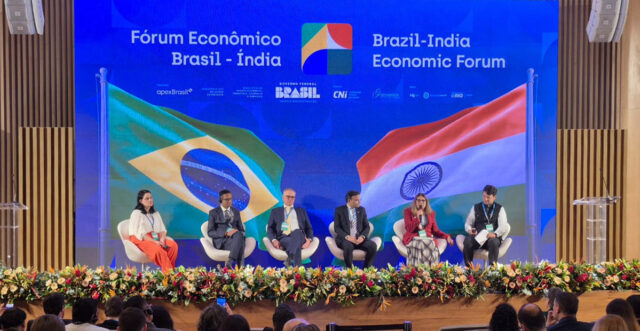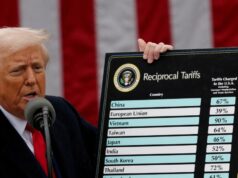
On the sidelines of the 17th BRICS Summit, the India-Brazil Economic Forum held at Rio’s `Museum of Tomorrow’ marked a crucial moment for advancing commercial and strategic cooperation between the two major emerging economies.
With corporate leaders and institutional representatives also in attendance, the forum laid out a multi-sector roadmap. The aim was to deepen bilateral trade, green partnerships and digital innovation. All this while signalling a shift towards trading in local currencies.
“The timing of the forum, during Prime Minister Narendra Modi’s third official visit to Brazil since 2019, reflects a thoughtful effort to align diplomatic engagement with economic outcomes,” said Dr Umesh Mukhi, Associate Professor of Management at FGV EAESP, São Paulo.
“From my perspective, I think it is something symbolic because we have not witnessed such a summit before. There were representatives from TCS, representatives from the Indian business community who are in Brazil. I would say—a crucial commitment by the Chamber of Commerce, the Minister of External Affairs of Brazil, APEX Brazil. Hopefully, if you have more consecutive summits, it can gain more traction,” Dr Mukhi told StratNews Global from Rio.
Key Takeaways
A Memorandum of Understanding (MoU) was signed between the Brazilian trade and investment promotion agency apexBrasil and the India-Brazil Chamber of Commerce, establishing a framework for increased trade promotion, investment facilitation and institutional collaboration.
In line with BRICS’ broader economic agenda, both India and Brazil expressed intent to expand trade using their respective national currencies, a move designed to shield businesses from exchange rate volatility and improve financial sovereignty. This complements discussions within BRICS on creating reliable local-currency settlement frameworks and exploring digital payment systems like BRICS Pay.
A major announcement was the $120 million investment by Brazilian company Embarco in Maharashtra, focused on the cold storage sector. This venture enhances India’s agriculture value chain, especially in reducing post-harvest losses. It represents growing confidence in India as a long-term destination for manufacturing partnerships.
Energy & Food Security
Energy transition and sustainability also featured prominently in discussions. Brazil, a leader in biofuels and ethanol production, shared best practices with Indian stakeholders exploring cleaner mobility and energy alternatives. Both countries reaffirmed the need for joint efforts in bioenergy development and technological innovation to meet their respective climate targets.
On food security and agricultural cooperation, India and Brazil explored the potential for self-sufficiency in fertilisers. One notable development is IFFCO’s ongoing nano-fertiliser plant project in Paraná, Brazil, which strengthens supply chains while fostering rural development. Additionally, trade in pulses—critical to India’s food security—was recognised as an active and expanding sector, with Brazil emerging as a key supplier.
Climate Diplomacy
Climate diplomacy also found resonance, especially with Brazil preparing to host COP-30 in 2025. André Aranha Corrêa do Lago, former Brazilian Ambassador to India, stressed the need for coordination on issues like climate finance, just transition and sustainable development goals. Jorge Viana, head of apexBrasil, highlighted collaboration opportunities in pharmaceuticals, agribusiness and digital technologies.
Indian pharmaceutical firms reiterated their commitment to Brazil, particularly in helping the country become self-reliant in Active Pharmaceutical Ingredients (APIs), a shared priority for both economies.
The outcomes of the forum are aligned with the broader BRICS declaration, which outlined a new multilateral guarantee fund and emphasised the strategic importance of local-currency trade to reduce borrowing costs and currency risk.
As India prepares to take over the BRICS chairmanship in 2026, the success of the India-Brazil Economic Forum reinforces its leadership in shaping inclusive and innovation-driven South–South cooperation.




